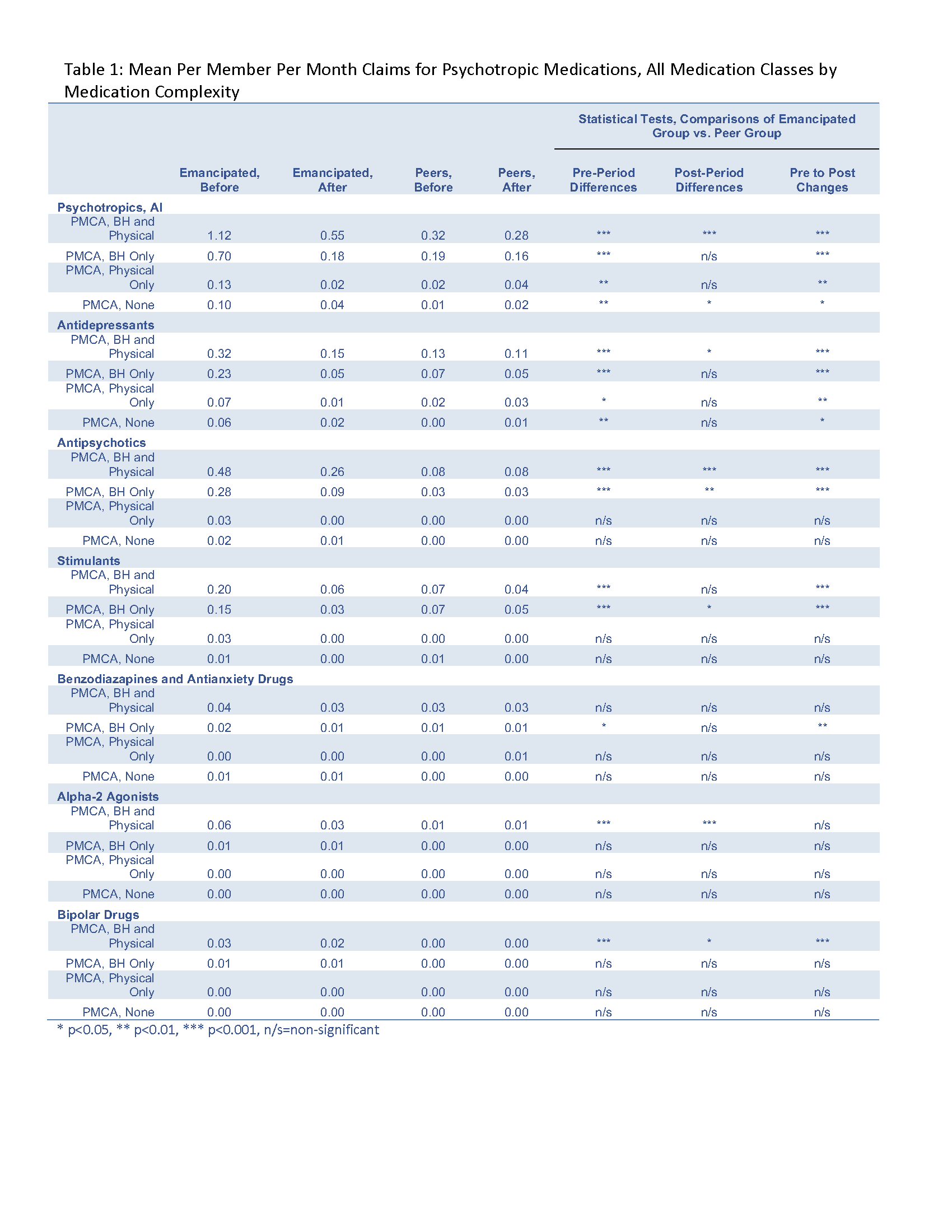Health Services Research
HSR 1: States, Medicaid, and the Structure of Health Care
571 - Examining Psychotropic Medication Use Among Young Adults who Emancipate from Foster Care Compared to Peers
Saturday, April 29, 2023
3:30 PM - 6:00 PM ET
Poster Number: 571
Publication Number: 571.222
Publication Number: 571.222
Liza M. Creel, University of Colorado Anschutz Medical Campus, Aurora, CO, United States; James G. Kaferly, University of Colorado School of Medicine, Denver, CO, United States; Carter Sevick, Division of Health Care Policy and Research, Aurora, CO, United States; Rebecca Orsi, University of Colorado Anschutz, Aurora, CO, United States; Susan Mathieu, Farley Health Policy Center, Aurora, CO, United States; Patrick W. Hosokawa, University of Colorado - Anschutz, Aurora, CO, United States; De'Janae' Guillory-Williams, University of Colorado School of Medicine, Aurora, CO, United States; R. Mark Gritz, University of Colorado School of Medicine, Aurora, CO, United States

Liza M. Creel, PhD, MPH (she/her/hers)
Associate Professor
University of Colorado Anschutz Medical Campus
Aurora, Colorado, United States
Presenting Author(s)
Background: An increased prevalence of physical and behavioral health conditions among youth in foster care is well documented. Use of psychotropic medications is high compared to other children. Foster care emancipation provides young adults opportunities to gain autonomy and creates risks that they forego needed healthcare services.
Objective: To examine differences in psychotropic medication use before and after emancipation for Medicaid-covered young adults in foster care and a peer comparison group in Colorado.
Design/Methods: This retrospective analysis linked child welfare and Medicaid administrative data for Coloradans aged 17-23 from 2014-2021. Emancipation from foster care was identified using child welfare data. A peer group of young adults with Medicaid coverage who never experienced foster care was matched by age, income, prior Medicaid-eligibility, and medical complexity using the Pediatric Medical Complexity Algorithm. After matching, each cohort had 1,658 young adults. Psychotropic medications were classified into six medication groups. Mean per member per month claims were used to estimate use overall and within each medication class. We tested between group differences pre and post and changes over time using generalized estimating equations with robust variance estimates.
Results: Among young adults who emancipate, psychotropic medication use is higher in the pre and post emancipation periods. They also experience a significant decrease in use from pre to post emancipation compared to peers. This decrease is largest for those with a behavioral health complexity regardless of physical complexity. Differences vary by drug class with use of antidepressants, antipsychotics, and stimulants showing substantial differences between the emancipated and peer groups. In each drug class, use is higher and the decrease between the pre and post periods is larger for those with a behavioral health complexity in the emancipated group. There were slight or no differences between the groups for alpha2agonists, antianxiety, or bipolar medications. See Table 1; Figure 1.
Conclusion(s): Emancipation from foster care is associated with decreased use of antidepressants, antipsychotics, and stimulants, particularly among those with a behavioral health complexity-a trend not observed among matched peers with similar behavioral health complexity. These findings suggest youth nearing foster care emancipation may benefit from additional supports and tools to maintain use of needed medications as they gain responsibility for medical decision-making.

.png)
